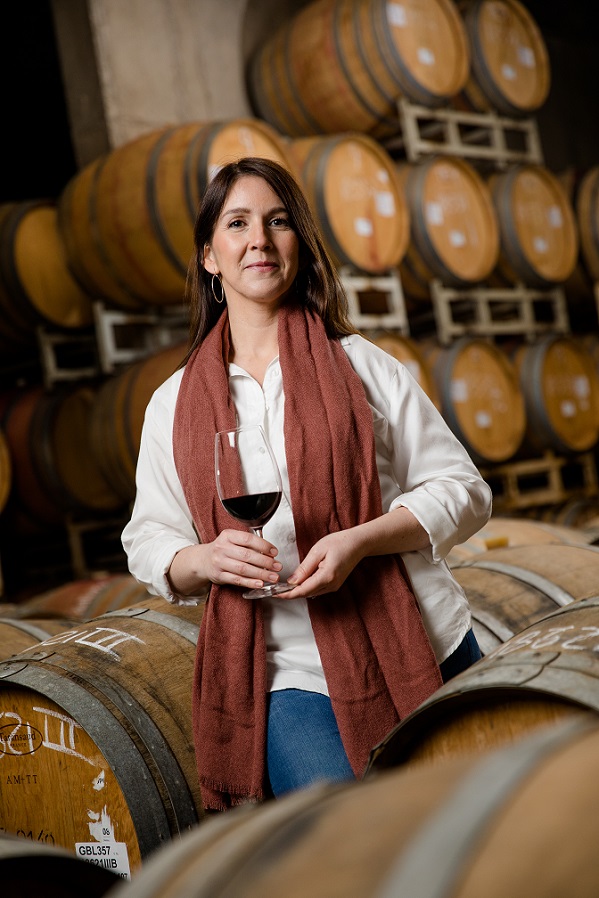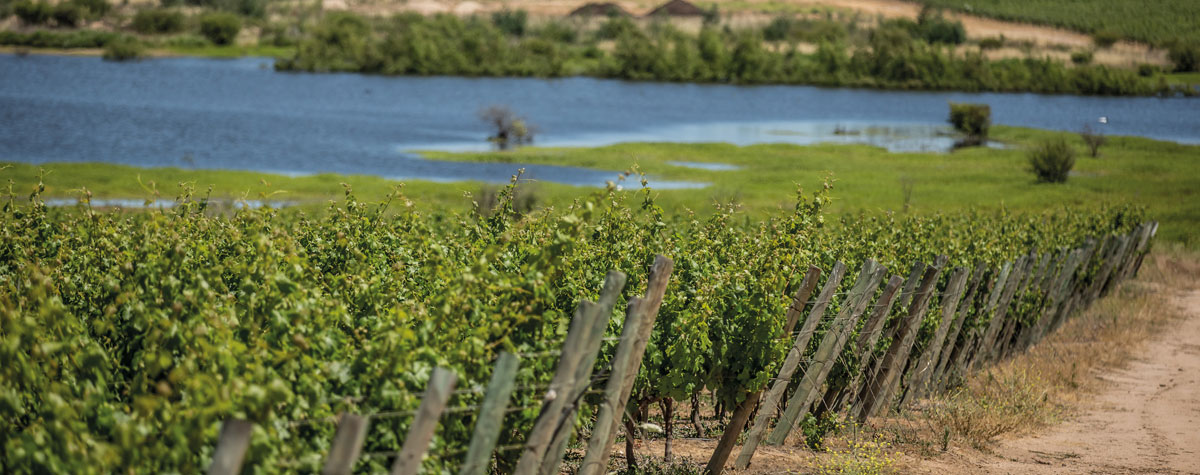The new look includes labels made from cotton instead of paper, reflecting the brand’s commitment to sustainability. These labels, according to head winemaker Sofía Araya, are expensive but easier to stick on bottles. She told Canopy: “The change to the cotton label was obvious to us, regarding our organic and sustainable and eco-friendly philosophy. It is 100% cotton, quite exclusive, and indeed expensive. In terms of use, it is nothing complicated, quite the contrary.”

The brand’s new name, Veramonte Organic, reflects the successful completion of an ambitious eight-year project to convert its landholdings in the Casablanca and Colchagua Valley to organic winegrowing practices. In four years, they managed to transform all 500ha of vineyards to 100% organic farming and are now working towards biodynamic certification.
“We expect to be certified by 2021,” Sofía said.
Their first ECOCERT certified wine, the Veramonte Sauvignon Blanc, came from the 2018 vintage. With the 2019 vintage comes the fresh new look.
The new packaging for this and Veramonte’s other new releases – including the 2018 Pinot Noir, Carmenere and Cabernet Sauvignon, and the 2020 Chardonnay – was designed by the Chilean-based firm Piano & Piano and interprets the winery’s story. The various label colours reflect the different grape varieties planted on the property intermixed with the flora and fauna used for cover crops (see below).
The design theme of a Biodynamic Cosmos pays tribute to the influences and training provided by the late Alan York and Chile’s Alvaro Espinoza.
In Chile, there are roughly 5,000ha planted with organic grapes, which means approximately 10% of organic grapes in the country are currently from Veramonte.
Sofía, who implemented the changes in the winery, has worked there for a decade and took over head winemaking duties from her renowned predecessor and mentor Rodrigo Soto in 2018.
'We try do to as little as possible to avoid influencing the wines'Canopy: What difference has organic farming made to the quality of the wine?
Sofía: “It definitely helps the vines to slowly express the best of the terroir, developing more fruit expression and elegancy.”
Has the winemaking changed in line with the conversion to organic farming?
Sofía: “Yes, the conversion to organic farming first comes within the fact we only use native yeast, in order to preserve the real expression of the terroir. We have a ‘no intervention philosophy’ at the winery, we try do to as little as possible to avoid influencing the wines with too many actions on them. We use less oak, to respect the natural characteristics of each grape variety and terroir.
“The biggest challenge in a winery switching to organic management is to keep the intervention as minimum as possible, no yeast, no acidity adjustments, less use of SO2 or as minimum as possible, no fining, no finishing products so we let the wines truly express their origin.”
How much have organic practices added to the difficulty of producing top quality wines and the cost of such wines?
Sofía: “This country has the wonderful natural advantage of having a naturally healthy habitat, allowing the grapes to express themselves without fear of illness and disease. There is little problem with rot, no phylloxera and fewer pests and diseases than other countries. It’s perfectly placed to embrace a purity of wine production, allowing the grapes to speak for themselves without modern-day farming interventions.”
The organic practices include:
- Making compost with the vintage waste. Sofía said: “I have great belief in achieving high quality compost. This requires a lot of dedication, expertise and patience. Through time we have come to develop a method that ensures the quality of our compost, we only use natural residues from our vineyards and winery. When the time is right, we apply it according to the soils’ needs.”
- Cover cropping. Sofía commented: “We mainly use cover crops that help us achieve specific requirements such us legumes that naturally fix the nitrogen in the soil, increasing its fertility. They also help to bring structure back to the soil and create a better environment for insects, worms, and microbiology in general.”
- Preserving biodiversity. Sofía said: “We have a holistic view of the ecosystem which we incorporate in our vineyards through several practices such as cover cropping, husbandry and habitat breaks. All these help to bring life back to our soils which in turn will allow the vines to achieve longevity and fruit that really expresses a sense of place. All this translates into vineyards that will transcend into future generations and wines that are a true reflection of their living soils.”
- Using sheep to help maintain the grass and soil. Sofía explained: “They help to naturally control grasses and they also add to the manure we use for compost; they add biodiversity to our vineyard as well.”

Canopy: Is sulphur still sprayed?
Sofía: “Yes, but as little as possible.”
Is copper used?
Sofía: “No.”
Veramonte's best wine so far in the International Wine Challenge.











.png)









